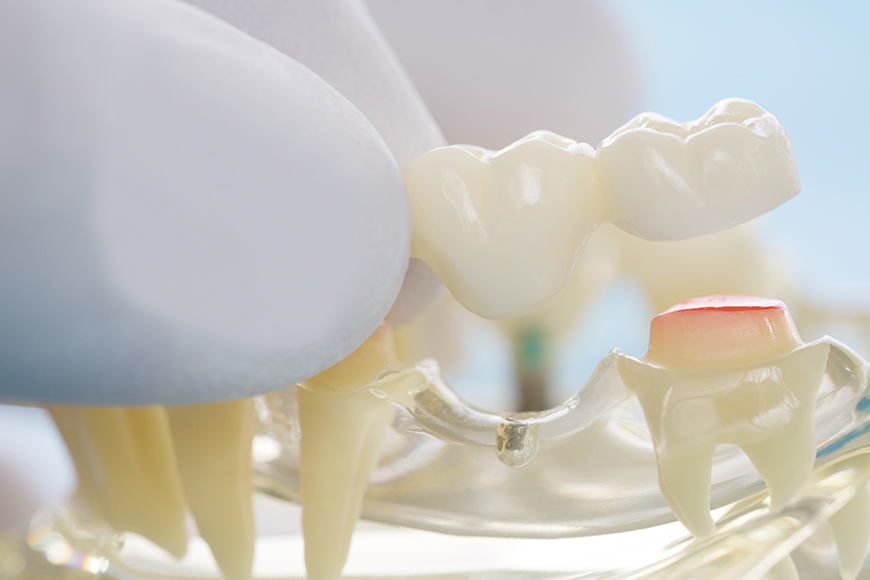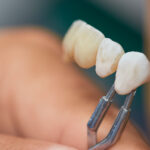Are you experiencing tooth pain, sensitivity, or noticing a crack in your tooth? A dental crown procedure might be the solution you’ve been searching for. This comprehensive guide will walk you through every step of the dental crown procedure, from initial consultation to final placement and beyond, addressing common questions about dental crown procedure time, crown adjustment, crown preparation tips, and preparing a tooth for a crown. We’ll also touch upon finding quality care in your area, including options like Madison Dentistry & Implant Center.
What is a Dental Crown Procedure?
A dental crown procedure involves placing a custom-made cap over a damaged tooth to restore its shape, size, strength, and appearance. Think of it as a protective shield that encases the entire visible portion of your tooth, bringing it back to its original glory. Dental crowns are a versatile solution for a variety of dental issues, offering both functional and aesthetic benefits.
Why Might You Need a Dental Crown?
Several reasons might necessitate a dental crown procedure:
- Damaged or Broken Tooth: A crown can repair a tooth fractured from an injury or weakened by decay.
- Weakened Tooth: A crown provides support to a tooth weakened by a large filling or extensive decay.
- Worn-Down Tooth: Grinding or clenching your teeth (bruxism) can wear down your teeth over time, making them candidates for crowns.
- Dental Implant: A crown is the final restoration placed on a dental implant, replacing a missing tooth.
- Cosmetic Improvement: Crowns can improve the appearance of misshapen or severely discolored teeth.
The Dental Crown Procedure: A Step-by-Step Guide
The dental crown procedure typically involves a few appointments:
- Initial Consultation and Examination: Your dentist will conduct a thorough examination, including X-rays, to assess the health of your tooth and surrounding bone. They will discuss your options and determine if a crown is the right treatment for you. This is also a great time to discuss any anxieties or concerns you may have about the dental crown procedure time.
- Tooth Preparation: This is a crucial step in preparing a tooth for a crown. Your dentist will reshape the tooth to create space for the crown. The amount of tooth structure removed depends on the type of crown being used. If the tooth is severely damaged or has insufficient structure, a core buildup may be necessary. Crown preparation tips include maintaining good oral hygiene before the procedure to ensure a healthy foundation for the crown.
- Impressions: After preparing a tooth for a crown, your dentist will take impressions of your teeth using a putty-like material or a digital scanner. These impressions are sent to a dental laboratory where the custom crown is fabricated.
- Temporary Crown: While your permanent crown is being made, you will typically be fitted with a temporary crown. This temporary crown protects the prepared tooth and allows you to maintain normal function and aesthetics.
- Crown Placement: Once your permanent crown is ready, you will return to the dental office for placement. Your dentist will remove the temporary crown and carefully seat the permanent crown. They will check the fit and make any necessary adjustments.
- Cementation: The final step involves cementing the crown permanently in place. Your dentist will ensure the crown is properly bonded to your tooth, providing a secure and long-lasting restoration.
Dental Crown Procedure Time: What to Expect
The entire dental crown procedure time can vary depending on individual circumstances. Generally, the process takes two to three appointments. The tooth preparation and impression taking usually occur in the first appointment. The fabrication of the crown takes a few weeks, and the final placement occurs in the subsequent appointment. Discuss your specific timeline with your dentist.
Crown Adjustment and Aftercare
After your crown is placed, you may experience some minor sensitivity. This is normal and usually subsides within a few days. If you experience any discomfort or notice any issues with your bite, contact your dentist for a crown adjustment. Proper aftercare is essential for the longevity of your crown. Maintain good oral hygiene by brushing and flossing regularly. Avoid chewing on hard objects and schedule regular dental checkups.
Preparing a Tooth for a Crown: Key Considerations
Preparing a tooth for a crown involves careful planning and execution. Here are some important considerations:
- Tooth Structure: The tooth must have sufficient structure to support the crown.
- Gum Health: Healthy gums are essential for a successful crown placement.
- Bite: Your bite needs to be properly assessed to ensure the crown fits comfortably and functions correctly.
Finding Quality Care in Madison
If you’re looking for a trusted dental practice for your dental crown procedure in Madison, consider Madison Dentistry & Implant Center. From initial consultation to final placement, Madison Dentistry & Implant Center provides expert dental crown procedures. We proudly serve the greater Madison area, welcoming patients from surrounding communities like Morristown, Chatham, Florham Park, Convent Station, Summit, New Providence, and Berkeley Heights. Experience the difference of dedicated care.
Types of Dental Crowns
Several types of dental crowns are available, each with its own advantages and disadvantages:
- Porcelain Crowns: These are popular due to their natural appearance and ability to match the color of your existing teeth.
- Porcelain Fused to Metal (PFM) Crowns: These crowns have a metal base covered with porcelain, offering a balance of strength and aesthetics.
- Metal Crowns (Gold or Alloy): These are the strongest type of crown and are typically used for back teeth.
- Zirconia Crowns: These crowns are made from a strong ceramic material and offer excellent durability and aesthetics.
Conclusion
The dental crown procedure is a reliable and effective way to restore damaged or weakened teeth. Understanding the process, from preparing a tooth for a crown to the final crown adjustment, can help you feel more confident and informed. Remember that proper aftercare and regular dental checkups are crucial for the long-term success of your crown. If you’re in the Madison area, consider consulting with the experts at Madison Dentistry & Implant Center for personalized care and exceptional results. Don’t hesitate to ask your dentist any questions you have about the dental crown procedure time or any other aspect of the process. A healthy and beautiful smile is an investment in your overall well-being.




